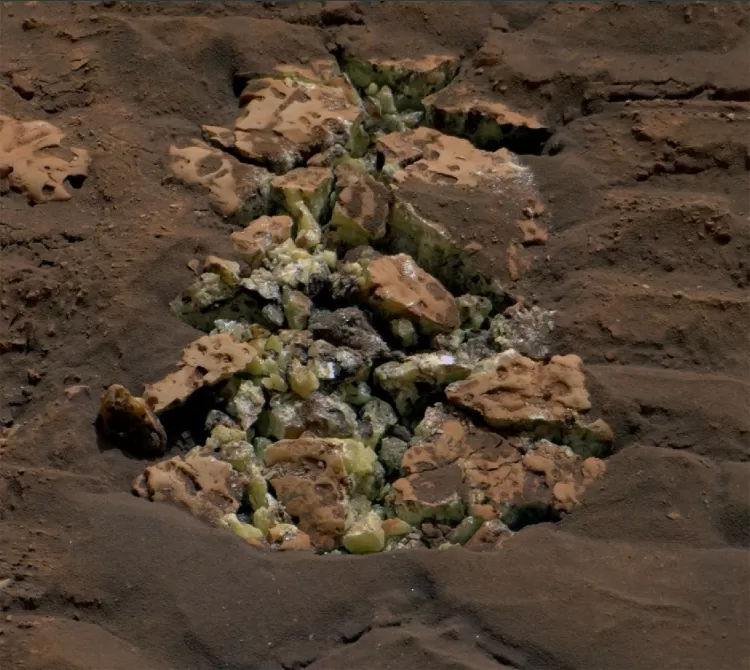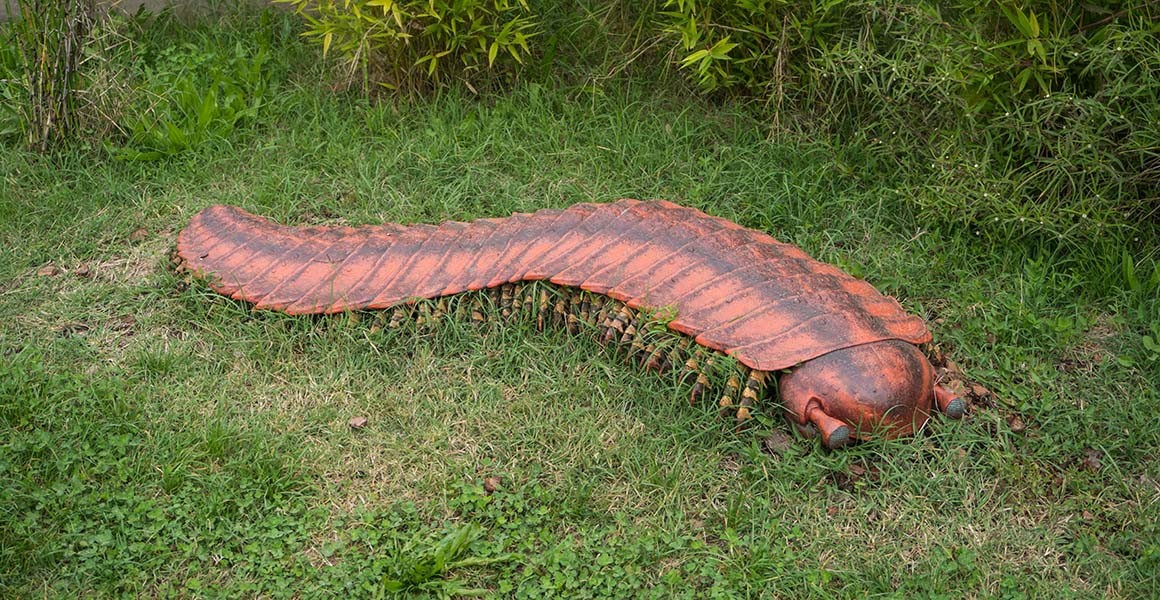Did Life Exist on Mars? New Discovery May Offer Clues
In a groundbreaking revelation, NASA's Perseverance rover has discovered a rock on Mars that may hold vital clues about the potential existence of life on the Red Planet billions of years ago. The rock, named Chava Falls, contains intriguing characteristics that could indicate microbial life once thrived on Mars. However, scientists caution that further research is needed to confirm these findings and understand the rock's true significance.

Context & Background:
The question of whether life ever existed on Mars has captivated scientists for decades. Mars, once a more habitable planet with a watery past, has long been a target for exploration in the search for signs of ancient life. NASA's Perseverance rover, launched in 2020, has been exploring the Martian surface, particularly Jezero Crater, a site believed to have been home to an ancient river delta. This rover is equipped with a suite of scientific instruments designed to detect organic compounds, microbial life, and other signs of past habitability.
Recently, the rover made an exciting discovery: a rock formation, nicknamed Chava Falls, which shows signs that it could have hosted microbial life billions of years ago. This discovery is part of Perseverance's ongoing mission to collect samples that could offer more definitive evidence about Mars' ancient environment and whether life ever existed on the planet.
Main Developments:
NASA's Perseverance rover used its Scanning Habitable Environments with Raman and Luminescence for Organics and Chemicals (SHERLOC) instrument to conduct detailed scans of the Chava Falls rock formation. These scans revealed that the rock contains organic compounds, which are the building blocks of life. Organic compounds, such as carbon-based molecules, can be created through biological processes, but they can also form through non-biological means.
While the presence of organic compounds is an intriguing development, NASA scientists caution that these compounds alone do not confirm the existence of ancient life. In fact, organic compounds can form in Mars' harsh environment without the involvement of life, so further analysis is needed to determine whether they were created by biological processes or through other means.
The rock's composition is particularly fascinating because it also contains structures and chemical traces that could potentially indicate the presence of ancient microbial life. The vein-filled rock appears to show signs of chemical reactions that could have been fueled by microbial life in the past. However, scientists have yet to fully determine the exact origins of these features and whether they are related to past life or merely the result of geological processes.
Analysis:
The discovery of Chava Falls raises the possibility that Mars once had conditions conducive to supporting life. The fact that the rock contains evidence of organic compounds, chemical traces, and the presence of water makes it an exciting find for scientists. Water, a key ingredient for life, is believed to have once flowed through Jezero Crater, and this new discovery suggests that Mars may have had a more hospitable environment billions of years ago.
However, scientists acknowledge that the exact process that formed the rock remains unclear. The presence of organic material and chemical reactions could have been influenced by environmental factors, such as water or volcanic activity, rather than biological processes. Therefore, while the discovery is promising, more research is necessary to determine whether this rock truly holds evidence of ancient life or whether its features can be explained by non-biological processes.
As Ken Farley, Perseverance project scientist at Caltech, pointed out, the rock's features are complex and puzzling, making it one of the most important samples collected so far. The presence of organic compounds, chemical reactions, and evidence of water are key factors that make Chava Falls a compelling subject for further study. However, scientists still need to better understand how the rock formed and whether its features can be attributed to microbial life or other natural processes.
Regional Focus:
The discovery was made on Mars' Jezero Crater, an area that has been of particular interest to scientists because it was once home to an ancient river delta. The delta, believed to have been carved by flowing water billions of years ago, provides an ideal location for studying the planet's past habitability. The Perseverance rover's exploration of this area is providing invaluable data that could help scientists better understand the conditions that existed on Mars during its early history.
As NASA continues to study the samples collected from Chava Falls and other areas of Jezero Crater, the findings could shed light on the broader question of whether life could have existed beyond Earth. The search for signs of ancient life on Mars is a key aspect of the ongoing Mars missions, and each discovery brings scientists closer to understanding the planet's history and its potential for supporting life.
Conclusion:
NASA's discovery of Chava Falls marks an exciting step in the search for ancient life on Mars. The rock formation’s organic compounds, chemical traces, and evidence of past water make it one of the most promising samples collected by the Perseverance rover. However, scientists caution that further research is needed to determine the true origins of the rock’s features and whether they are indicative of microbial life.
While the presence of organic compounds is an important clue, it does not provide definitive proof of past life on Mars. As the Perseverance team continues to study the rock and analyze other samples, they hope to gather more data that could help answer the question of whether life ever existed on the Red Planet. The discovery of Chava Falls is a crucial part of this ongoing mission, and it brings us one step closer to understanding the history of Mars and its potential for supporting life.
The journey to uncovering the mysteries of Mars continues, and with each new discovery, we are one step closer to answering one of humanity’s most profound questions: Was there ever life on Mars?
What's Your Reaction?
















